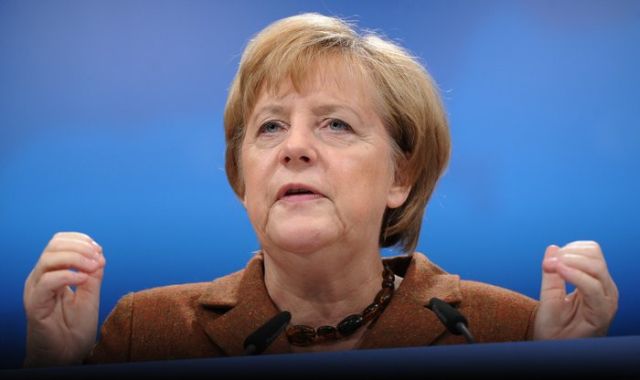Photo: kathimerini.gr
Having presented the revelations of the British Financial Times newspaper first and then subsequently the viewpoint of former US Treasury Secretary Timothy Geithner, we are continuing the theme of the dramatic events in Greece, from the autumn of 2011 to the summer of 2012, when the country and the entire eurozone were on the brink of catastrophe.
The continuation of the investigation by the Financial Times in connection with the eurozone crisis makes it clear that before the parliamentary elections in Greece in 2012, the European Union and the International Monetary Fund had drawn up a secret Plan Ζ on how to make the transition from the euro to the drachma.

According to the newspaper, the plan drawn up for months by a few senior officials from the eurozone, the European Central Bank and the International Monetary Fund provided for measures such as the sealing of ATMs and border controls to prevent capital outflow as well as the issuance of special currency notes (IOU) as a temporary currency.
How was the plan drawn up before the 2012 elections?
While Greece was preparing for the elections in June 2012 in an atmosphere of increased political instability, and Angela Merkel was trying to decide whether it would be appropriate for the country to be forced to exit the eurozone, a small and closed team of top officials from the European Commission, the Eurogroup, the European Central Bank and the International Monetary Fund were adding the final points to the secret Plan Ζ on how to organize all the details of the transition of the Greek economy from the euro to the drachma and how to protect the other eurozone member states from the spreading of the crisis.

In the second part of the investigation for the dramatic changes in the eurozone during the crisis Financial Times describes the top secret Plan Ζ that provided for what would have happened if the Greek government had failed to implement the Memorandum and if the country had been ultimately forced to exit the eurozone. The serious work on Plan Ζ began in late January 2012 and reached its peak after May 2012, when the election victory of the radical left SYRIZA party was already deemed possible and when there was a significant concern of a mass withdrawal of deposits from banks (bank run). Plan Ζ was so secret that the 24 senior officials involved in its development had drawn up no written documents in order to prevent leaks of information. Participants in the development of the plan state before the British newspaper that it played a dual role: firstly, as an argument against the expulsion of Greece from the eurozone because the resulting economic, political and technical challenges would have been terrible.

Secondly, the Plan Ζ described in detail the creation of a new financial system for Greece. The plan provided for drastic measures such as turning off all ATMs and reinstating border controls to avoid capital outflow. It also provided for issuing special currency notes (IOU) worth about half the value of the euro. The option of attempting issuing drachmas was immediately rejected for practical reasons and due to insufficient time. At the same time, a new system to clear all transactions had to be created from scratch since Greece would have been unable to use the European system. Another threat was the fact that its inability to pay government bonds worth 3.1 billion euro maturing on 20 August 2012 would have probably led to the termination of funding for Greek banks on the part of the European Central Bank and therefore the Greek economy would have collapsed. An equally important concern that could have led to Greece's exit from the eurozone was the true "invasion" of bank deposits in the period between the two election rounds at a time when the European Central Bank could not provide liquidity to banks because they had no guarantees. Before the 2012 elections in Greece, the astounding amount of € 28.5 billion in cash had been transferred to the country.
Meanwhile in Berlin, Angela Merkel was trying to clarify the consequences of Greece's exit from the eurozone. The answers she obtained were contradictory, and Minister of Finance Wolfgang Schaeuble insisted on expelling Greece from the eurozone in order to prevent the entire monetary union from collapsing.

Other advisers to Merkel believed that Greece's exit from the eurozone would lead to a domino effect and an increase in borrowing costs and bank runs in Portugal, Italy and Spain. In connection with Greece’s exit Jörg Asmussen (Member of the Management Board of the European Central Bank) advised Angela Merkel, "You could have something which is already priced in already, and then you could contain it, or you could end up with a eurozone of 10 countries."
In the end, it was not necessary to apply the Plan Ζ because after the elections in June 2012, a coalition government was composed in Greece that was committed to implement the Memorandum and Angela Merkel decided that Greece's exit from the eurozone would be a very risky endeavour.